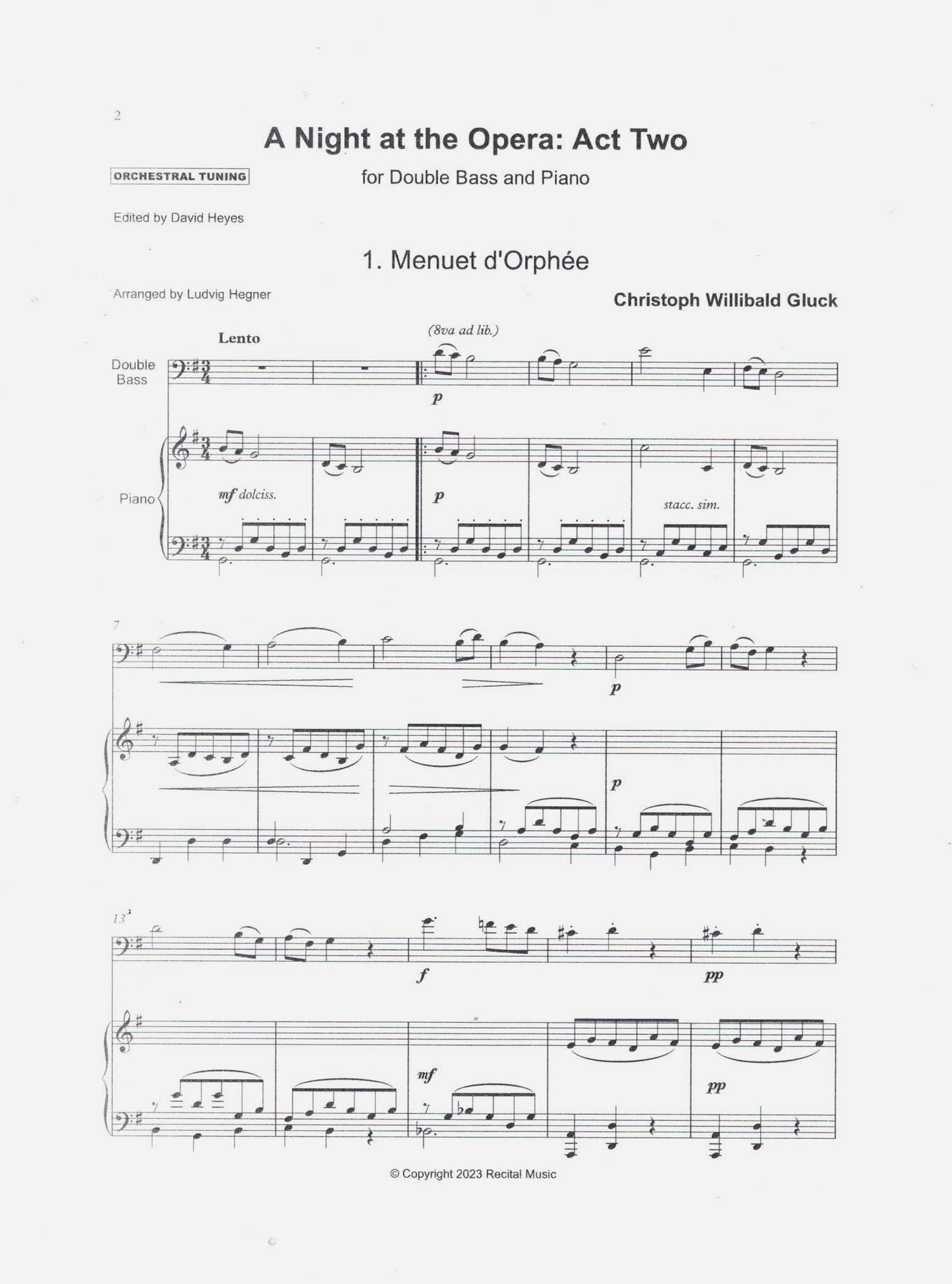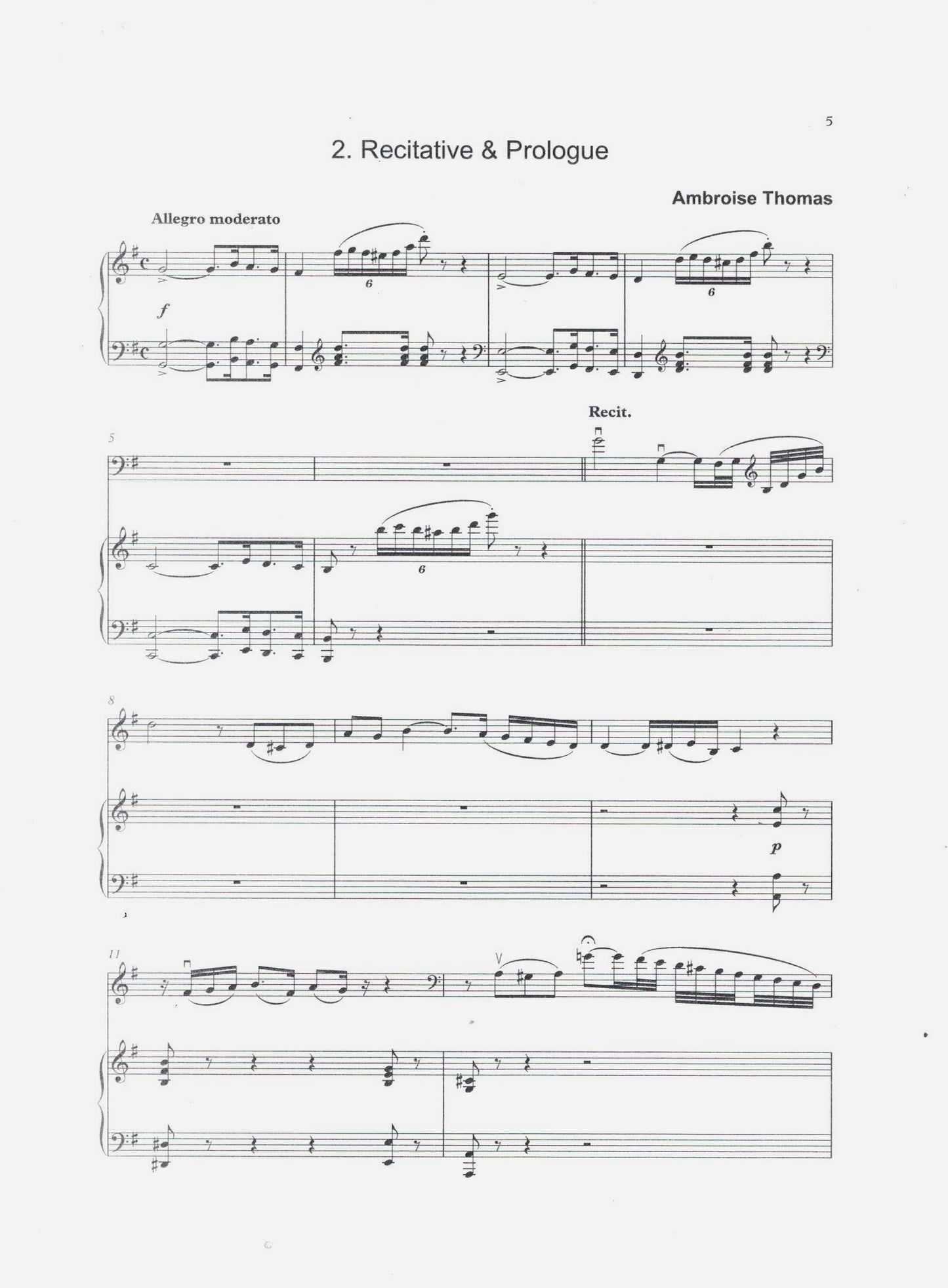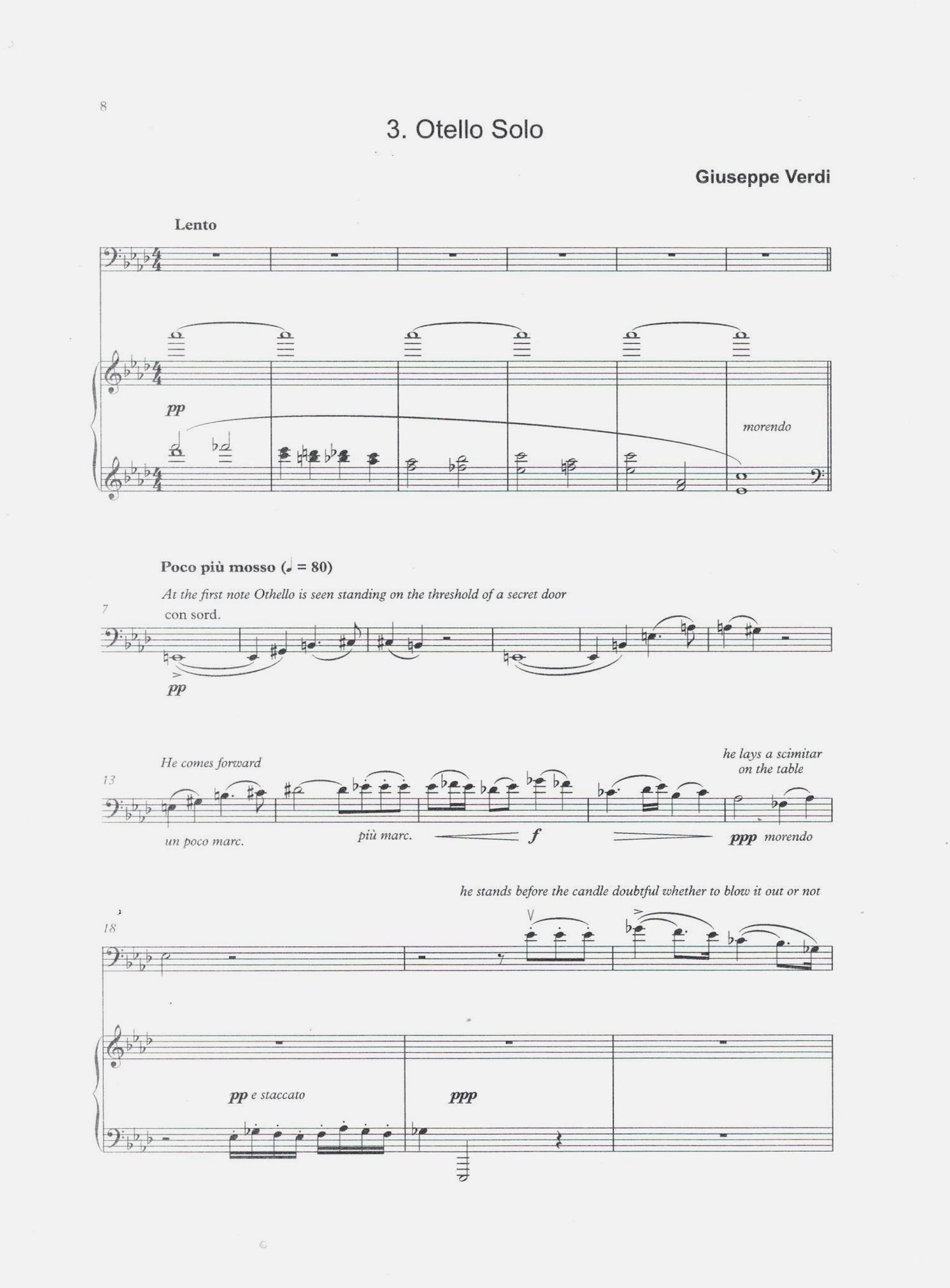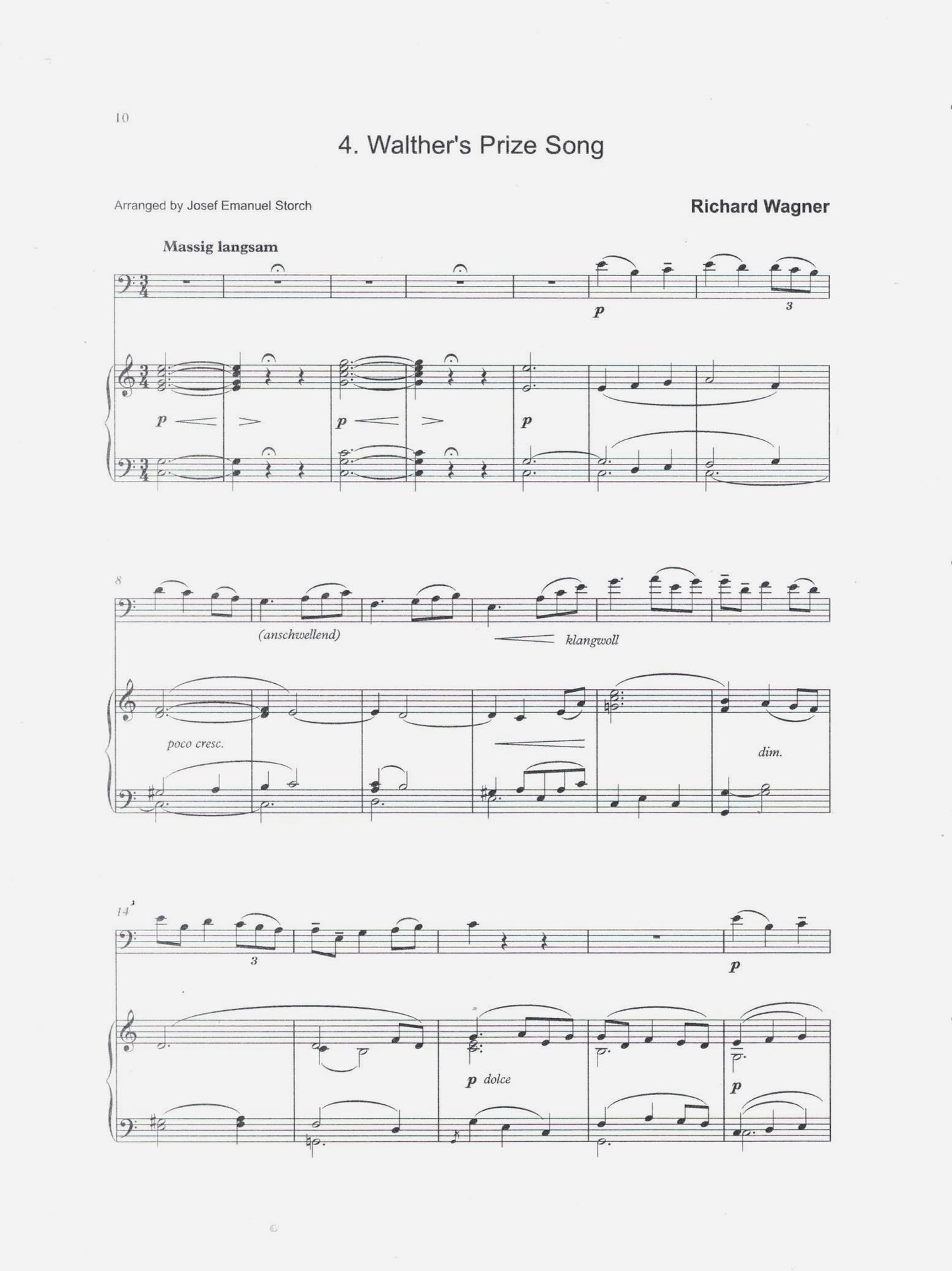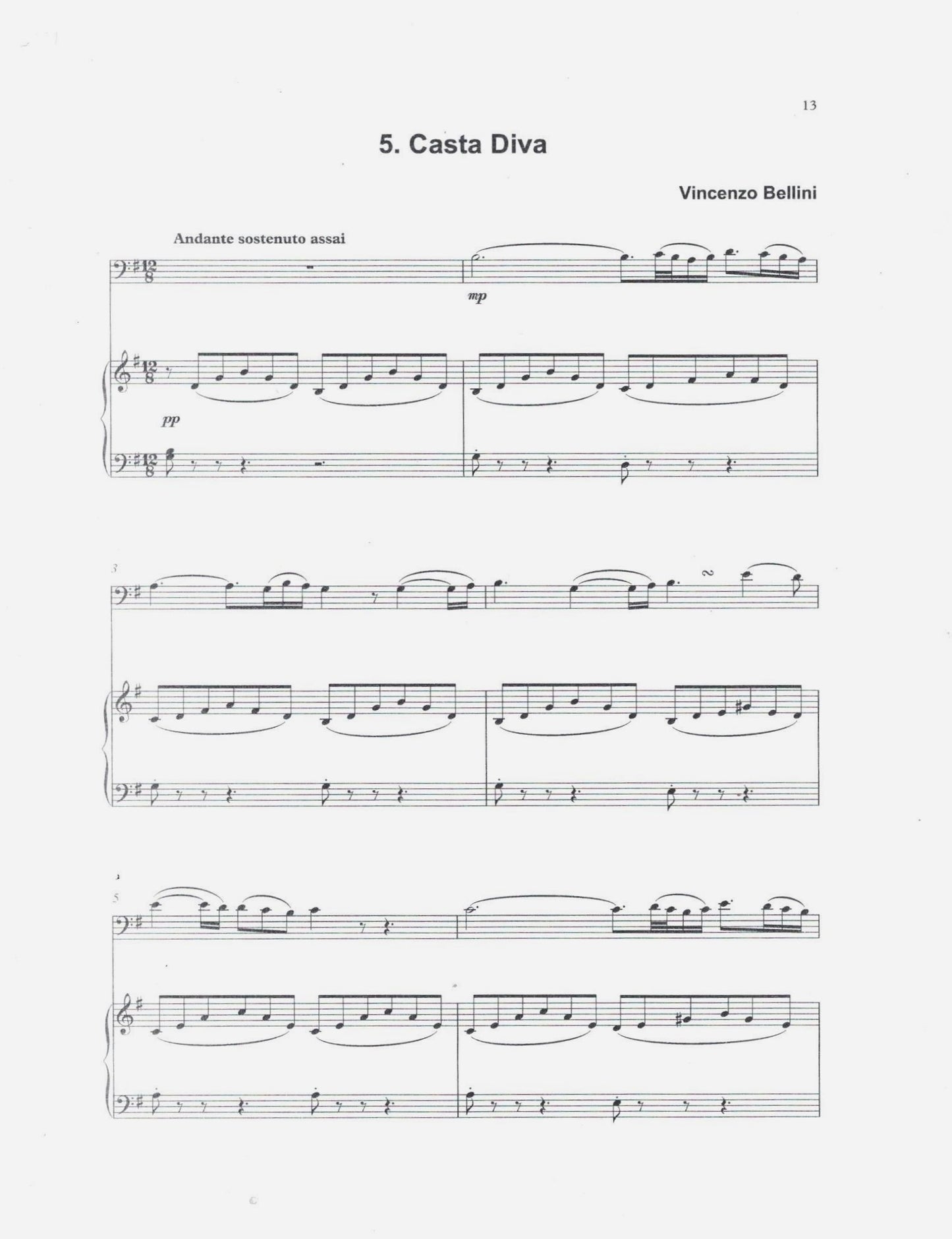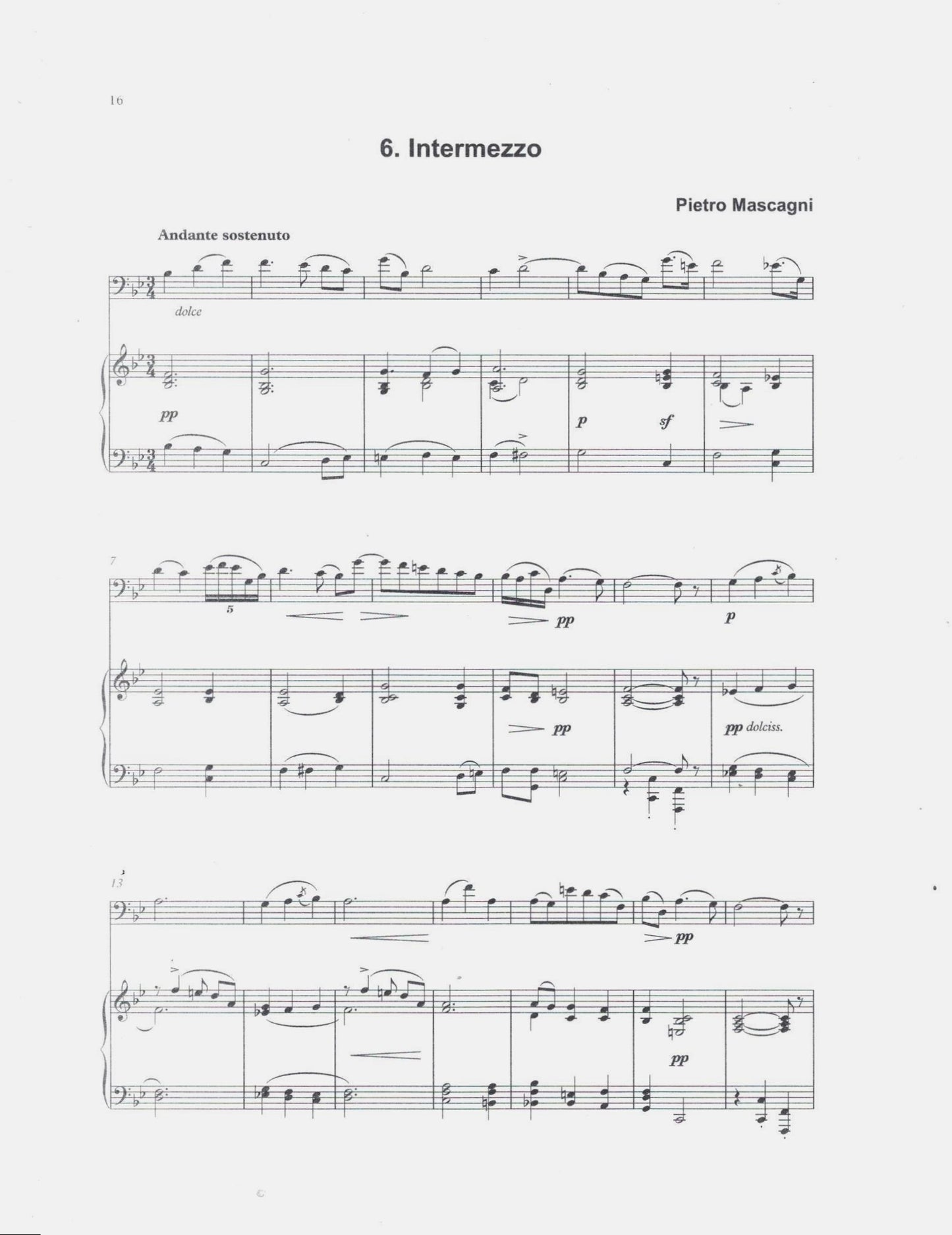David Heyes
A Night at the Opera: Act Two for double bass & piano (arr. David Heyes)
A Night at the Opera: Act Two for double bass & piano (arr. David Heyes)
Couldn't load pickup availability
About the Compositions
Arranged by David Heyes, Ludvig Hegner & Josef Emanuel Storch
A Night at the Opera: Act Two brings together four evocative orchestral interludes and two exquisite arias from six operas, arranged by David Heyes (b.1960), Ludvig Hegner (1851-1923) and Josef Emanuel Storch (1841-1876). Aimed at the intermediate bassist, with some knowledge of thumb position, each piece has been carefully selected to demonstrate the lyrical and sonorous qualities of the double bass.
The world of opera has long inspired composers and players to plunder the best arias and melodies to transcribe for other instruments. The double bass is no exception, and Bottesini's operatic fantasias are still at the very heart of our solo repertoire into the 21st century. It's difficult to keep a good tune down!
A Night at the Opera: Act Two is available for both solo and orchestral tunings.
1. C.W. Gluck (1714-1787) - Menuet d’Orphée (Orfeo ed Euridice)
Orfeo ed Euridice was first performed in Vienna in 1762. It is one of the composer’s most popular works and, although it was set to an Italian libretto, it owes much to the genre of French opera. This short ballet, from the end of Act Two, was arranged for double bass and piano by Ludvig Hegner and was first published in 1909 in Copenhagen by Wilhelm Hansen
2. Ambroise Thomas (1811-1896) - Recitative & Prologue (Hamlet)
Ambroise Thomas was a French composer and teacher and in 1871 succeeded Daniel Auber as Director of the Paris Conservatoire. He composed twenty operas and Hamlet is a grand opera in five acts, dating from 1868. The Recitative & Prologue come towards the end of Act II (Second Part) and is originally a short incidental solo for saxophone.
3. Giuseppe Verdi (1813-1901) - Otello Solo (Otello)
Otello, based on Shakespeare’s Othello, is in four acts and was Verdi’s penultimate opera, completed in 1885 and first performed in Milan in 1887. The famous double bass solo is heard towards the beginning of Act IV, employing the lowest register and creating a dark and menacing mood. A powerful climax in thumb position is followed by a rapid descent to the lower register, ending with a rising scale passage and two tutti chords bringing the music to a dramatic and pronounced conclusion.
4. Richard Wagner (1813-1883) - Walther’s Prize Song (Die Miestersinger von Nürnberg)
The Mastersingers of Nuremburg is a music drama in three acts and is one of the longest operas performed, lasting around four and a half hours. It was first performed in Munich in 1868 and is the only comedy amongst Wagner’s mature operas. The Prize Song is Walther’s love song to Eva and is a magnificent tour de force for many operatic tenors. It transcribes beautifully for the double bass, in its rich middle register, emphasising the lyrical and sonorous possibilities of the instrument.
5. Vincenzo Bellini (1801-1835) - Casta Diva (Norma)
Norma is a tragic opera in two acts and was first performed in Milan in 1831. It is a perfect example of a bel canto opera and the prayer Casta Diva, performed by Norma, is its most famous aria. The title role has been described as “one of the most taxing and wide-ranging parts in the entire repertory” and has always attracted the leading sopranos of the day. The aria is a moment of stillness and calm and Norma, the head priestess, sings a beautiful prayer to the goddess of the moon.
6. Pietro Mascagni (1863-1945) - Intermezzo (Cavalleria Rusticana)
Italian composer Pietro Mascagni composed fifteen operas but Cavalleria Rusticana, his 1890 masterpiece, has overshadowed all his other works. In one-act and often partnered with the one-act Pagliacci by Ruggero Leoncavallo, it remains in the international operatic repertoire to this day. The orchestral intermezzo is based on a hymn heard earlier in the opera and its lyrical and powerful melody, with a simple but evocative accompaniment, has created a mini-masterpiece which has been arranged for almost every instrumental combination.

